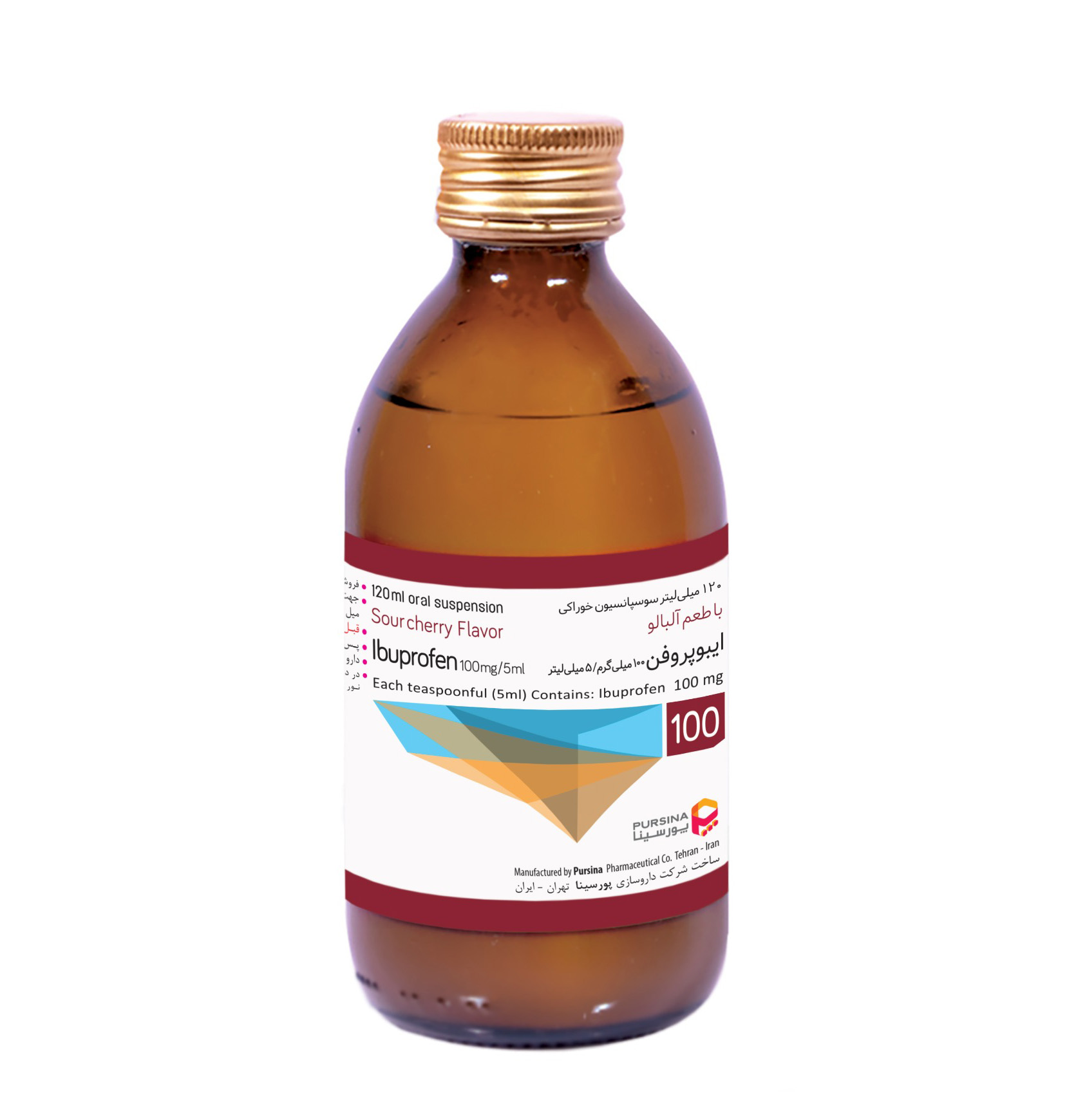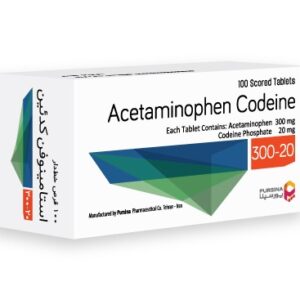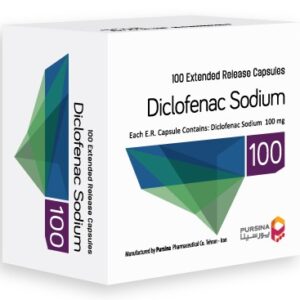Description
How Supplied
Each 5 ml of suspension contains 100 mg Ibuprofen. 120 ml suspension in a bottle.
Category
Non-steroidal anti-inflammatory drugs (NSAIDs); Antipyretic & Analgesic.
Mechanism of Action
Reversibly inhibits cyclooxygenase-1 and 2 (COX-1 and 2) enzymes, which results in decreased formation of prostaglandin precursors; has antipyretic, analgesic, and anti-inflammatory properties.
Pharmacokinetics
Ibuprofen is rapidly absorbed following administration and is rapidly distributed throughout the whole body. Peak plasma concentrations occur about 1 to 2 hours after ingestion with food or in 45 minutes if taken on an empty stomach. These times may vary with different dosage forms.
The excretion is rapid and complete via the kidneys.
The half-life of ibuprofen is about 2 hours.
It is metabolized to two inactive metabolites and these are rapidly excreted in urine. About 1 percent is excreted in urine as unchanged Ibuprofen and about 14 percent as conjugated Ibuprofen
Dosage and Administration
Usual pediatric dose
Antirheumatic:
Children 6 months to 12 years of age:
Oral, initially 30 to 40 mg per kg of body weight a day in 3 or 4 divided doses. After a satisfactory response has been achieved, dosage should be reduced to the lowest dose needed to control disease activity.
Antipyretic:
Children 6 months to 12 years of age:
Oral,5 mg per kg of body weight for fevers less than 39.17 °C and 10 mg per kg of body weight for higher fevers. Dosage may be repeated, if necessary, at intervals of 4 to 6 hours or more.
Usual pediatric prescribing limits
Antirheumatic: 50 mg per kg of body weight per day.
Antipyretic: 40 mg per kg of body weight per day.
Pregnancy and breast feeding
Ibuprofen should NOT be taken in the last 3 months of pregnancy, as it may be harmful to the unborn child.
Pregnant women intending to use this product should seek medical advice before use as it should only be taken on doctor’s advice during the first 6 months of pregnancy.
Consult with your doctor or pharmacist in lactation.
Side Effects
Like all medicines, Ibuprofen can cause side-effects although not everybody gets them.
You should STOP giving Ibuprofen and seek advice from your doctor if your child experiences a very rare allergic reaction, including skin rashes, increased sensitivity to light, swelling of the face and tongue, inflammation of the blood vessels, fever or shock. Skin and mucous membrane reactions may also occur.
The most common side-effect is irritation of the stomach which can cause problems in some patients.
If your child suffers from the following, stop giving the medicine and seek immediate medical help:
- Passing blood in their faeces (stools/motions)
- Passing black tarry stools
- Vomiting blood or dark particles that look like ground coffee
- Unexplained wheezing, shortness of breath, skin rash (which may be severe and include blistering or peeling
of the skin), itching or bruising, lightheadedness, racing of the heart or fluid retention e.g. swollen ankles, not
passing enough urine
- stiff neck, headache, nausea, vomiting, fever and disorientation.
If your child experiences any of the following, stop giving the medicine and tell your doctor:
- If your child’s skin starts to turn red or they develop a varied skin reaction or their skin starts to blister or peel,
this is very rare
- Unexplained stomach pain, indigestion, heartburn, feeling sick and/or vomiting
- Yellowing of the eyes and/or skin
- Severe sore throat with high fever or unexplained bleeding, bruising and tiredness.
Precautions
There is a risk of renal (kidney) impairment in dehydrated children.
You should discuss your child’s treatment with your doctor or pharmacist before giving Ibuprofen 100 mg/5 ml Oral Suspension if your child:
- has high blood pressure, kidney or liver problems
- has asthma or diabetes
- has lupus or mixed connective tissue disease
- has a chronic inflammatory intestinal disease such as ulcerative colitis or Crohn’s disease or gastrointestinal
- bleeding
- has chickenpox.
Drug interactions
Other medicines and Ibuprofen 100 mg/5 ml Oral Suspension
Please tell your doctor or pharmacist if your child is taking or has recently taken any other medicines, including medicines obtained without a prescription. Ibuprofen 100 mg/5 ml Oral Suspension may affect or be affected by some medicines. For example:
- Diuretics
- Medicines that are anticoagulants
- Medicines that reduce high blood pressure
- Lithium or Selective serotonin reuptake inhibitors
- Methotrexate
- Zidovudine
- Corticosteroids
- Cardiac glycosides
- Ciclosporin or Tacrolimus
- Mifepristone
- Quinolone antibiotics
Storage
Store below 30˚c. Store in a tight container. Protect from freezing. Keep out of reach of children.




